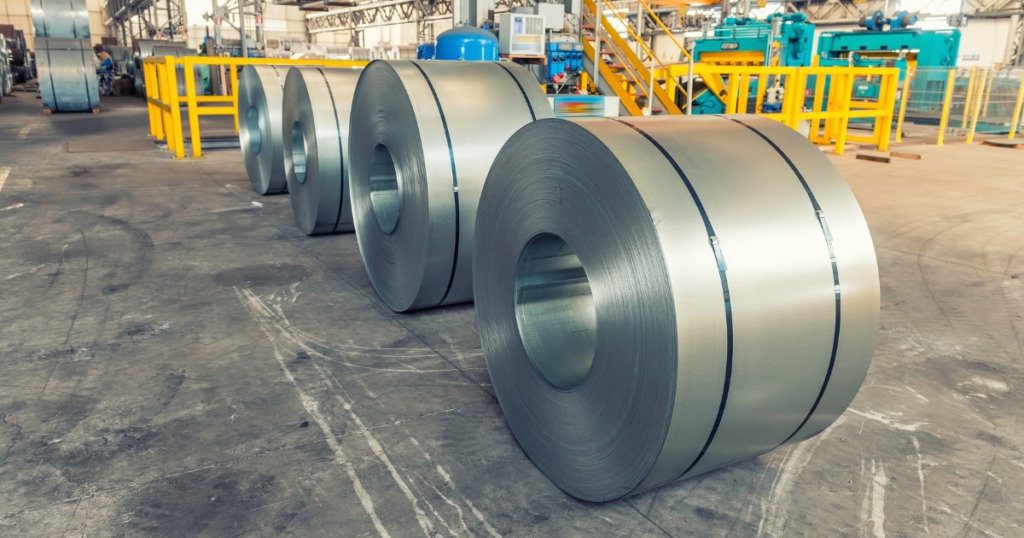How MES Enhances Production Planning in Steel Plants
- Home
- Blog Details

- December 2 2024
- systemadmin
Production planning in steel plants is often considered a tough balancing act. Production planners need to align resources with market demands while hitting the plant’s production targets. It’s also a constant juggling of decisions to keep things running smoothly, as production units can sometimes run into delays and material rejection. That’s where a Manufacturing Execution System (MES) comes in to improve the functioning of steel plants. By providing real-time data and overall visibility over the operations, MES helps streamline the production planning process. In this MES production planning steel blog, we’ll explore how MES can make production planning easier and more efficient.
Table of Contents
ToggleWhat Production Planning Is and What It Entails
Production planning is a strategic process necessary for the smooth operation of steel plants. It involves the organization and coordination of resources to meet production targets while aligning the whole thing with market demands. Basically, production planning ensures that the correct quantities of steel are produced with the quality expected for the batch or as requested by the client.
One of the most important goals of production planning is using available resources efficiently to save costs and eliminate waste. Production planning is also a dynamic process that adjusts to changes in production conditions and market requirements. A well-executed production plan balances all the factors involved to avoid over-planning or under-planning, both of which can negatively impact the plant’s performance and costs.

The various parts of production planning involve:
- Organizational Objectives: It involves aligning production goals with the overall objectives of the business.
- Resource Management: Planning allocating resources like labor, machinery, and raw materials effectively to optimize for cost and availability.
- Market Requirements: It involves understanding and planning to meet market demands such as price fluctuations and customer needs.
- Material Planning: It involves calculating the required quantities of raw materials for the batch produced and managing inventory levels.
- Maintenance Scheduling: This process involves planning for regular maintenance to avoid equipment downtime or failures.
- Coordination: Planning for the batch ensures smooth coordination between different departments to maintain a balanced production flow.
- Accuracy and Adaptability: It involves continuously adjusting plans based on real-time data and changes in production conditions.
How MES Enhances Production Planning in Steel Plants
As is evident from the nuances of production planning, it’s a process that has a lot of scope for improvement with digitization. An MES that is properly implemented can offer plenty of advantages to the steel plant. Here are 6 areas where MES production planning steel advantages are evident.
1. Real-Time Data Collection Across the Plant
In steel plants, having instant data on all the areas and equipment can go a long way in keeping production on track. MES systems make this easy by providing real-time insights straight from the production floor. Plant operators can know immediately if a furnace’s temperature drops below the threshold or if there’s a blockage in material flow, which can disrupt the whole process. This immediate feedback allows planners to tweak their production plan right away and avoid delays and wasted work.
2. Enhanced Scheduling and Resource Allocation
Scheduling and resource allocation are key to keeping a steel plant running on time for deliveries. MES production planning steel systems manage production by creating more accurate schedules based on real-time data on the floor. For instance, if the MES detects that the annealing section is running slower than usual because of a fault, it adjusts the schedule to prevent bottlenecks.
The system also helps allocate resources like labor and materials in the right place to gain speed or keep up with the flow. MES aligns production schedules with current conditions and available resources to meet targets without overloading the equipment.
3. Predictive Maintenance and Downtime Reduction
Predictive maintenance has been a breakthrough for steel plants, which have traditionally been affected by unexpected downtimes and sudden failures. The systems continuously monitor equipment performance using IIoT devices and analyze the data. By real-time and historical analysis of performance data, MES can predict when a machine might fail or need maintenance. For instance, if a visual sensor detects the unusual orientation of rebars coming out of the rolling mill, the system can alert operators before a major breakdown occurs.
4. Better Inventory Management to Reduce Costs
Managing inventory in a steel plant is all about striking a fine balance. The plant needs enough raw materials and in-process goods to keep production flowing. However, having too much material in the inventory can lead the costs to skyrocket. MES systems help strike that balance by providing real time visibility into inventory levels and comparing it with running conditions and expected throughput.
If supplies are running low, the system alerts the planners to reorder material before it impacts production. Conversely, it helps avoid overstocking by aligning inventory with actual production needs. By keeping inventory levels just right, MES reduces waste, cuts costs, and ensures that the production plan stays on track without unnecessary delays or excess.
5. Improved Quality Control
Quality control is a critical factor in steel production as the material properties of the output depend on it. While manual quality control has challenges, MES systems take it to the next level by maintaining a strict tolerance. MES systems continuously monitor steel production so that quality standards are met at every stage.
Closing Thoughts
Integrating MES into steel production planning enhances how plants operate from a fundamental level. From real-time data collection to strict quality control, MES production planning steel systems make the production planning process a whole lot simpler. Digitization helps planners make better decisions and optimize resources so the plants can meet production targets on budget and stay competitive in the market.
FactoryCONNECT is a cutting-edge MES solution for manufacturing units. By seamlessly integrating across your systems on the production floor, it provides real-time data, better scheduling, and improved quality control. Take control of your operations with complete visibility into the plant with FactoryCONNECT.
Contact us today to learn how we can transform your steel plant!

